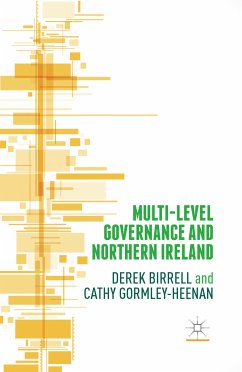
Security, Identity, and British Counterterrorism Policy (eBook, PDF)
Versandkostenfrei!
Sofort per Download lieferbar
40,95 €
inkl. MwSt.
Weitere Ausgaben:

PAYBACK Punkte
20 °P sammeln!
Counterterrorism laws and policies have become a normalized fixture of security agendas across the globe. How do 'us/them' identity constructions contribute to the legitimizing strategies surrounding this development? The British case provides a historically-situated illustration which is of ongoing significance for security and insecurity today.
Dieser Download kann aus rechtlichen Gründen nur mit Rechnungsadresse in A, B, BG, CY, CZ, D, DK, EW, E, FIN, F, GR, HR, H, IRL, I, LT, L, LR, M, NL, PL, P, R, S, SLO, SK ausgeliefert werden.












